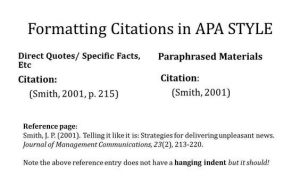The journey of a nursing student culminates in the pinnacle of academic achievement: the thesis. This document, a testament to years of dedication and research, is not just a mere academic exercise; it's a platform to contribute to the ever-evolving landscape of nursing knowledge and practice. Crafting a stellar nursing thesis demands meticulous planning, robust research, and a meticulous understanding of the intricacies of academic writing, particularly the APA format.
This comprehensive guide aims to equip you with the tools and insights to navigate this crucial stage of your academic career, guiding you toward a thesis that shines brightly.
How to Write an Engaging Nursing Thesis Topic
Laying the Foundation: Choosing a Thesis Topic
The foundation of a stellar thesis lies in the choice of a compelling and relevant topic. Selecting the right topic is paramount; it sets the stage for your research and determines the scope of your exploration. Consider the following factors:
- Personal Interest: Your thesis journey will be significantly enriched if you delve into a topic that genuinely excites you. Passion fuels motivation, driving you through the demanding research and writing process.
- Relevance to Nursing Practice: A thesis should hold practical implications for the nursing profession. Choose a topic that addresses a pressing issue, proposes a solution to a current challenge, or contributes to the body of knowledge in a way that directly benefits nurses and their patients.
- Feasibility: Consider the available resources, including time, funding, and access to data, before committing to a topic. A manageable scope ensures a successful completion within the allotted time frame.
- Literature Review: A thorough literature review is crucial. Explore existing research on your chosen topic to identify gaps in knowledge, areas of controversy, and emerging trends. This will help refine your research question and define the unique contribution your thesis will make. Academic writing platforms such as Nursing Papers offer well crafted scholarly resources that can be quite useful in your research.
Formulating the Guiding Star: Crafting a Strong Research Question
Once you've identified your topic, the next crucial step is formulating a clear, focused research question. This question serves as the guiding light for your entire thesis, defining the direction of your investigation and providing a framework for your research.
Here are essential characteristics of a strong research question:
- Specificity: Avoid broad, general questions. Instead, focus on a specific aspect of your chosen topic.
- Measurability: The question should be phrased in a way that allows for quantifiable or observable results.
- Relevance: The question should directly relate to your chosen topic and contribute to the existing body of knowledge in nursing.
- Feasibility: Ensure that your research question is answerable within the constraints of your resources and timeframe.
Building the Scaffold: Structure and Organization
A well-organized nursing thesis in APA provides a clear and logical flow of ideas, making it easier for readers to follow your arguments and comprehend your findings. The traditional thesis structure, comprised of several distinct sections, provides a robust framework for your research:

- Introduction: This section sets the stage for your thesis. It includes a clear statement of your research question, a concise overview of your chosen topic, and a brief summary of the relevant background information.
- Literature Review: This section delves into the existing body of knowledge related to your research question. Critically analyze existing research, identify gaps in knowledge, and highlight the unique contribution your thesis will make.
- Methodology: This section outlines the specific methods you used to collect and analyze data. Explain the research design, sample selection, data collection techniques, and analytical methods employed.
- Findings: This section presents the results of your research, clearly and concisely. Use tables, figures, and graphs to visually represent your data and support your arguments.
- Discussion: Here, you interpret your findings, discussing their implications, limitations, and potential impact on nursing practice. Connect your findings to the existing body of knowledge, highlight the significance of your research, and discuss potential areas for future research.
- Conclusion: This section provides a concise summary of your thesis, emphasizing the key findings and their implications. Reiterate the significance of your research and offer closing remarks.
The Language of Scholarship: Writing in APA Format
The American Psychological Association (APA) style is the standard format for scholarly writing in nursing and other disciplines within the social sciences. Mastering APA format ensures consistency, clarity, and adherence to academic standards.
Key Elements of APA Format for Nursing Thesis Writing
- Title Page: The title page contains the thesis title, your name, affiliation, and date of submission.
- Abstract: A concise summary of your thesis, typically no more than 250 words, providing an overview of the research question, methodology, key findings, and conclusions.
- Running Head: A shortened version of your thesis title that appears on each page.
- In-Text Citations: Use parenthetical citations to acknowledge sources throughout your thesis, including author's last name, year of publication, and page number if applicable.
- References: A comprehensive list of all sources cited in your thesis, presented in alphabetical order.
- Formatting: APA guidelines dictate specific formatting for headings, margins, font size, and spacing.
Tools for Success: Resources and Support
The journey to a stellar nursing thesis is not a solitary one. Utilize available resources and seek support to navigate the challenges and enhance your chances of success.
- University Library: Access a wealth of scholarly journals, databases, and online resources. Library staff can provide invaluable guidance on research techniques and resource identification.
- Professors and Advisors: Your thesis advisor is your primary guide, offering expertise, feedback, and support throughout the process. Don't hesitate to engage with other faculty members in your field for additional insights and guidance.
- Writing Centers: University writing centers offer assistance with writing style, grammar, and formatting. They can help you refine your writing, ensure clarity, and achieve academic excellence.
- Peer Review: Sharing your work with colleagues for feedback is invaluable. Constructive criticism from peers can help identify weaknesses, improve clarity, and enhance the overall quality of your thesis.
Beyond the Form: The Essence of Excellence
While mastering APA format is crucial, it's merely one aspect of creating a stellar nursing thesis. The true essence of excellence lies in the quality of your research, the depth of your analysis, and the impact of your findings.
Key Elements of a Stellar Nursing Thesis:
- Rigorous Research: Employ sound research methods, ensuring data collection and analysis are robust and ethically conducted.
- Critical Analysis: Go beyond merely presenting data; critically analyze your findings, drawing meaningful insights and connecting them to existing knowledge.
- Clarity and Conciseness: Write in a clear and concise style, using precise language and avoiding unnecessary jargon. Organize your thoughts logically, ensuring a smooth flow of ideas.
- Originality: Strive to make a unique contribution to the field of nursing. Identify gaps in knowledge, challenge existing assumptions, or propose innovative solutions.
- Impact: Consider the potential implications of your findings for nursing practice, patient care, and future research.
Common Mistakes in Writing a Thesis in APA Format
Here are some common mistakes in writing a thesis in APA format:
General Formatting Mistakes:
- Incorrect font: Use Times New Roman, 12pt font throughout.
- Improper margins: Use 1-inch margins on all sides.
- Inconsistent spacing: Use double-spacing throughout the paper, except for headings and tables/figures.
- Misaligned text: The entire document should be left-aligned except for the title page and running head.
- Incorrect page numbering: The title page should not have a number, but all subsequent pages should be numbered consecutively in the top right corner.
Citation and Referencing Mistakes:
- Incomplete citations: Provide all necessary information (author, year, title, etc.) for every source cited.
- Inaccurate in-text citations: Use parenthetical citations correctly (e.g., (Smith, 2023) or Smith (2023) for direct quotes).
- Missing or incorrect references: The References list should include every source cited in the text and follow APA format accurately.
- Plagiarism: Ensure all ideas and information are properly attributed to their original sources.
 Structure and Organization Mistakes:
Structure and Organization Mistakes:
- Lack of clear organization: Use headings and subheadings to break up the text and guide the reader.
- Weak introduction: The introduction should clearly state the research question, hypothesis, and purpose of the study.
- Insufficient literature review: The literature review should provide a comprehensive overview of relevant research.
- Lack of methodology section: This section should describe the research design, participants, data collection procedures, and data analysis methods.
- Insufficient discussion of results: The discussion section should analyze the results and interpret their meaning in the context of the literature.
- Weak conclusion: The conclusion should restate the main findings, discuss their implications, and suggest future directions for research.
Other Mistakes:
- Excessive use of jargon: Avoid technical terms that may be unfamiliar to a general audience.
- Passive voice: Use active voice whenever possible.
- Lack of objectivity: Maintain an objective and unbiased tone throughout the paper.
- Poor writing style: Use clear and concise language, avoiding unnecessary redundancy and overly complex sentence structures.
Pro-Tips to Avoid Mistakes:
- Consult the APA Publication Manual: This is the definitive guide to APA style.
- Use APA style guides and templates: Many resources are available online to help you format your thesis correctly.
- Review your work carefully: Proofread your thesis for grammatical errors, typos, and formatting issues before submitting it.
- Seek feedback from others: Ask a friend, colleague, or professor to review your thesis for clarity and accuracy.
Remember, paying close attention to APA format will ensure your thesis is well-organized, credible, and easy to read.
Embark on the Journey:
The path to a stellar nursing thesis is a journey of discovery, exploration, and intellectual growth. Embrace the challenges, utilize available resources, and let your passion for nursing guide you. With careful planning, meticulous research, and dedication to academic excellence, you can produce a thesis that not only fulfills your academic requirements but also makes a valuable contribution to the nursing profession. Remember, your thesis is a testament to your commitment to improving patient care and advancing the field of nursing. Let it be a shining example of your hard work and dedication to the pursuit of knowledge.
Get Professional Nursing Thesis Writing Help
Are you struggling with writing a nursing thesis in APA format? Then, engage
Academia Scholars for professional thesis writing help. We offer customized nursing thesis writing assistance for Master’s and Doctoral programs. We can assist you in every stage of the thesis writing process to ensure an authentic and compelling piece for academic excellence. We also provide professional academic writing help with
nursing research papers, case studies, essays and
dissertations.

 Structure and Organization Mistakes:
Structure and Organization Mistakes: